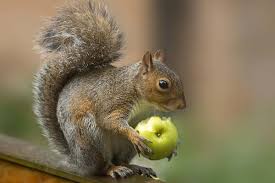
MUSINGS THROUGH A
BIFOCAL LENS
I grew up in a
different time. The lines between adults and children were drawn with
precision. I called adults Mr. or Mrs., and it never occurred to me to answer
back to my parents. When I ate with adults other than my parents, my siblings
and I sat at the children’s table. We never felt left out; that’s just the way
things were back then, and we accepted it without question.
Mostly everyone I
knew learned proper manners. We said please and thank you, ate with our mouths
closed, and were taught not to interrupt adults when they were speaking. My
mother insisted we speak correctly, using correct diction. In my small town, my
friends all said, “I’m going over my friend’s house” and “It was so fun.” I
learned to say, “I’m going over to my friend’s house” and “It was so much
fun.”
There was one
phrase that I remember my mother using often. It stands out in my mind more
than any other. The phrase “because I said so” was one I dreaded hearing most.
I was an inquisitive child, and always felt better knowing and understanding
things. When my mother said, “because I said so,” I couldn’t grasp it. It
didn’t explain why, and why was something I always wanted to know. But being
that I was a child from the 60s and 70s, I accepted it, and that was that.
Another doozy of a
phrase was “we’ll see.” Now I don’t know about you, but “we’ll see,” to me,
meant more than maybe, which usually meant no. When my mother said, “We’ll see,”
I felt there was a glimmer of possibility that I would get the new tape
recorder with the easy-to-carry handle that my cousin just got. “We’ll see”
meant that we really might go to the amusement park that my friend just went
to. That phrase gave me hope. It was many years later that I learned from my
mother that she used that phrase liberally because she really wanted her
children to be happy, even if she couldn’t give them what they wanted. “We’ll
see” was her way of caring.
Oh, how times have
changed. Manners just don’t carry the weight that they once did. Please and
thank you seem to have flown out of the same window as thank-you notes for
presents received. No one would think of putting children at a separate table
from adults, and there doesn’t seem to be anything called adult conversations anymore
when children are at the table.
I must say that,
for all my strong feelings about the lack of manners taught to children today,
I think what I’ve learned most is that children need to be respected by adults,
and certainly by their parents. It’s important to listen to what they think and
how they feel about things that are weighing on them and on topics that are
important to them. If I could do it all over again, I would respect my children
more. I guess I’m improving in that area now more than I ever did before.
I spend time
talking to my children and grandchildren and listening to what they have to
say. It’s nice not to be in charge of my grandchildren, and I’m glad I’m not
responsible for raising them. I’m grateful and thankful that, when I look at my
children, I am proud of who they are and who they have become. They are amazing
people in their own right and are doing a great job in raising their children.
What more can I ask for?
Oh, don’t worry, I
still ask for plenty. And when it comes to my children, I ask, and I ask, and I
ask some more. I’m no different from any other parent who only wants her
children to be healthy and happy. It is with an ache in my heart that I wait
for my child to find her zivug. I do
what I am told to do: daven, make my phone calls, and be there for my child.
How painful it is to watch one’s child go through the necessary motions until
things come to an end. It is heart-wrenching beyond belief, as though I can
feel my heart ripping into two pieces.
Why oh why, Hashem,
does my child have to suffer? Why can’t she find her zivug and why can’t it be now? And that phrase that was the bane of
my existence when I was a child comes hurtling back to my mind once again: “Because
I said so.” Only this time, it is not my mother who is saying this phrase to
her little girl with two black braids and two scabby knees. No, this time, it
is my loving and caring Father Who knows what is best and Who has the most
wonderful person in mind for my child, perfectly tailor-made. And with more
than the gossamer thread of hope with the old “we’ll see,” I can trust and
believe in Hashem with all of my heart.
Zahava Hochberg
created the weekly column Musings Through a Bifocal Lens for the Monsey Mevaser newspaper. She also
created a new section for the paper called
The Silver Slant.
Zahava can be reached at zahava.hochberg17@gmail.com.






